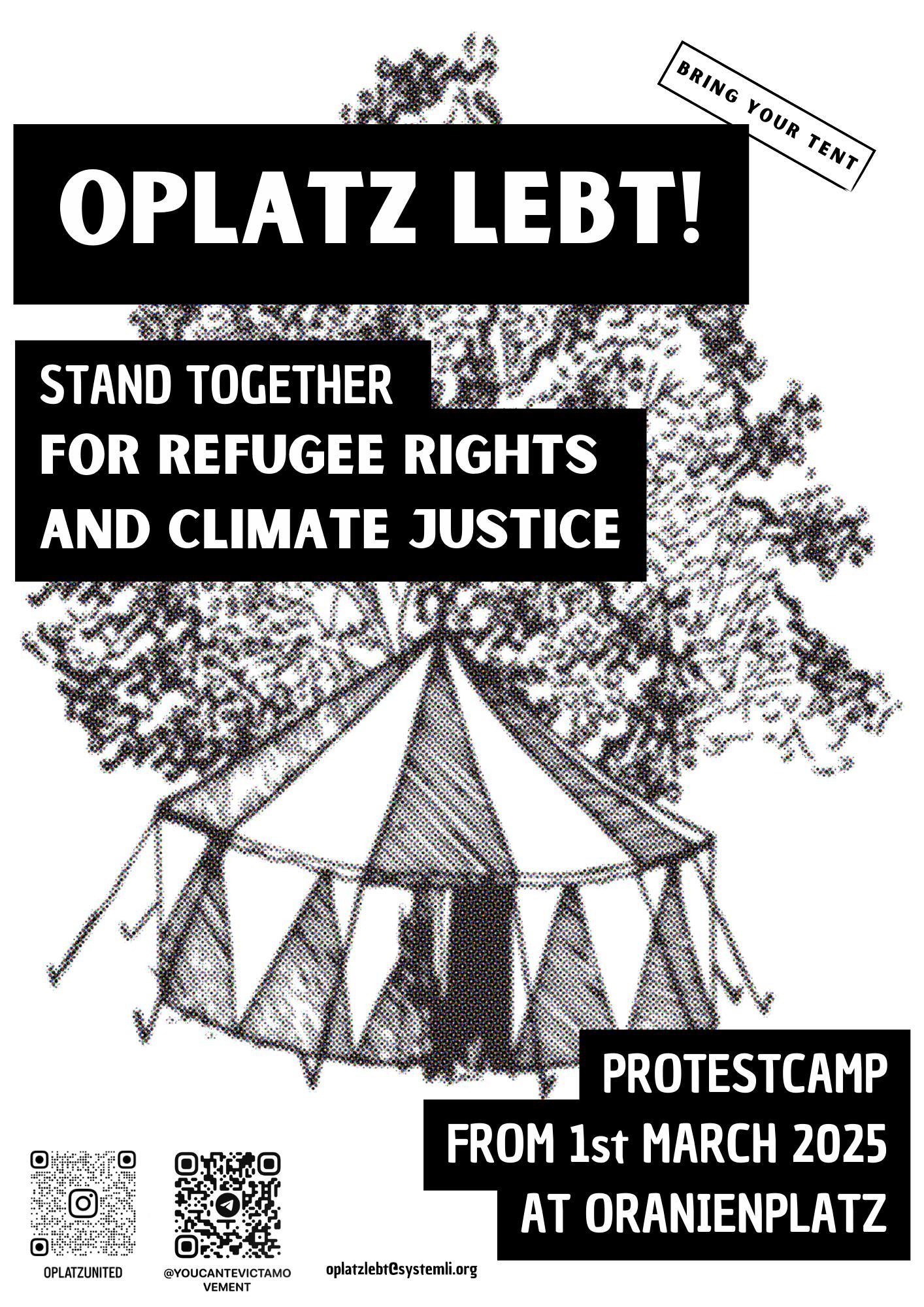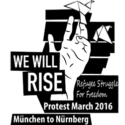Tag: Human rights
-

O-Platz lebt! Stand together – for refugee, migrant rights and climate justice
Protest camp 1st-31st of March 2025 We come together at O-Platz in March 2025 to fight for the rights of refugees, migrants and climate justice. We see this month as an opportunity to make our struggle visible by taking space in the middle of people’s daily life. We want to break the isolation and be…
-
Gedenkkundgebung für 130 Menschen, Opfer des europäischen Grenzregime im Mittelmeer, Oranienplatz, 29.April, 18.30 Uhr
Am 22. April bekommen wir, vom Alarmphone, die Nachricht, dass 130 Menschen im Mittelmeer ertrunken sind. Wir hatten die lybische und die europäischen Küstenwachen viele Stunden im Voraus informiert. Sie haben sich geweigert zu handeln. Eine Woche später wollen wir in Wut und Trauer auf die Straße gehen, um den Ertrunkenen zu gedenken. Europe, your…
-
BlackLivesMatter: Schwarzer Widerstand und Schwarze Realitäten
Black Lives Matter – „Schwarzer Widerstand und Schwarze Realitäten“ This is Not a Moment, but a Movement. 26.02.2017 Einlass 17.30 Uhr Start:18.00 Uhr – 21.00Uhr Werkstatt der Kulturen, großer Saal, II Stock powered by ISD – Initiative Schwarze Menschen in Deutschland Filmpräsentation + Filmbesprechung „Generation Revolution“ Generation Revolution brings to screen the powerful story of…
-
Impressions of the expert conference “Protection of Refugees against gender-based Violence”
text in german by International Women’s Space There are two forms of violence, according to Jennifer Kamau, an activist of International Women’s Space Berlin, a political group. The first form hits people directly and comes from individuals and structures, while the second form occurs when the public looks away and stays silent. The latter is…
-

About the wind as our companion and the deportation prison in our heads. Looking back on two months of protest
The time has come to take stock of our struggle over the past two months, to know where we have been succesful and where we have lost time. This is the moment of truth. I took part in the demonstration of 07.09.2016 which marked the beginning of our protest actions not only as a member…
-

PRESSE-MITTEILUNG: Ausbruch aus der Notunterkunft
English | Castellano | العربية On Thursday 24.11.16, 10AM – 10PM at Osloerstr. 23-26 in Berlin-Weding: Die Bewohner*innen einer Notunterkunft in der Nähe der Osloerstr. (Wedding), inklusive Familien mit Kindern, werden am Donnerstag (24. November) aus der Sporthalle zum Protest ausbrechen und davor eine 12-stündige Strassen-Blockade starten. Der foldende Brief ist von den asylsuchenden Bewohner*innen…
-
Urgent help needed to stop deportations to Sudan
Amnesty International is mobilizing against the deportation of two people arrested in Calais on 25th of October during the destruction of the shantytown to Sudan and flights scheduled to Khartoum (see here and there). A presentation of their situation and a campaign via twitter are online here: https://www.amnesty.fr/refugies-et-migrants/actualites/france-deux-personnes-bientot-renvoyes-dans-un-pays Amnesty International also asks people to contact…
-
Press release about what’s happening at Bornitzstr. 102
by abriraqui Are private companies, like PeWoBe establishing how to run the Lagers of asylum seekers and refugees? Who are the real decision-makers? During 7 days, in the Lager at Bornitzstr 102 run by PeWoBE, 122 refugees are trying to avoid an eviction but there is only uncertainty. No reasons were given to it but…